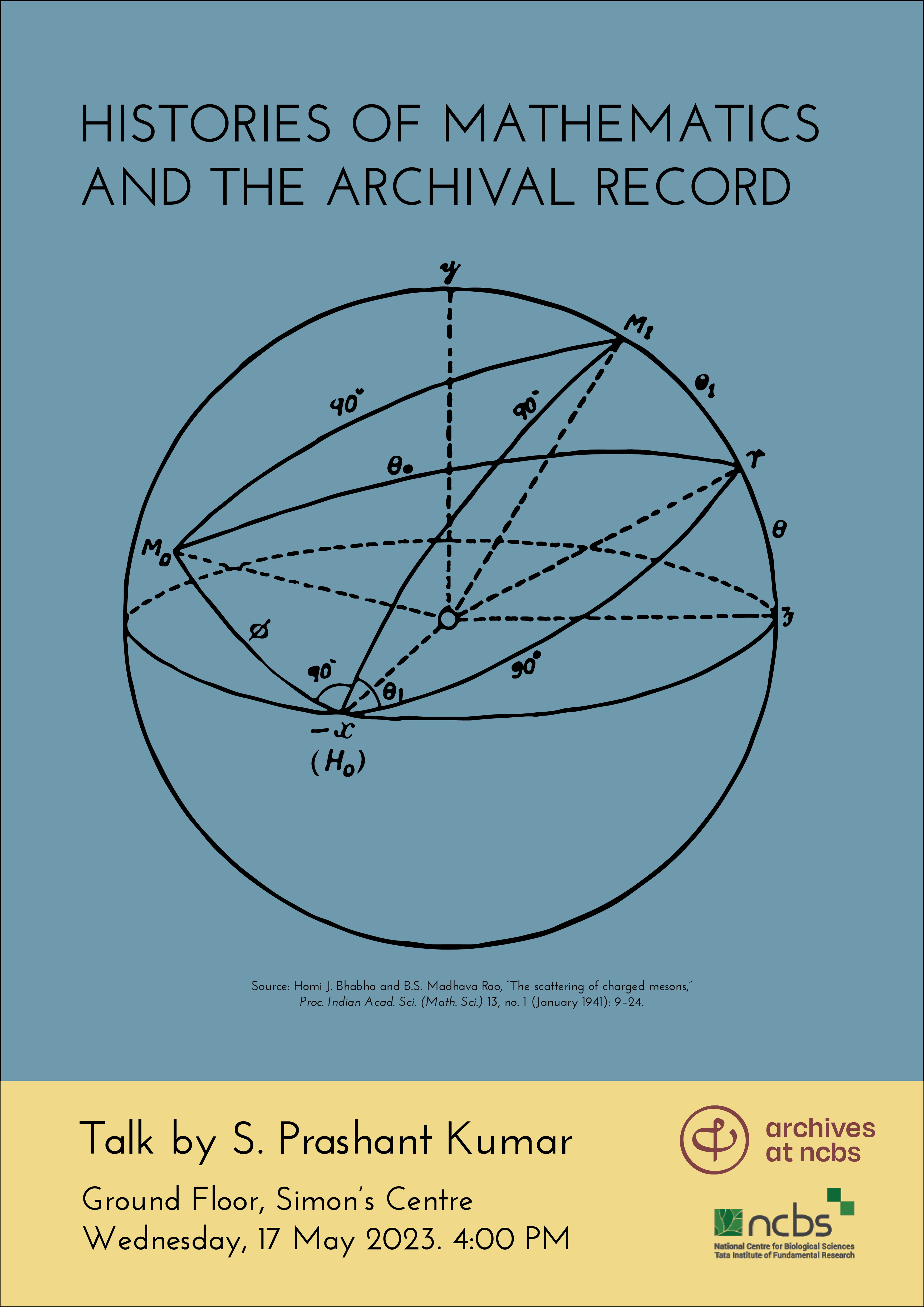Archives at NCBS : Events - Histories of Mathematics and the Archival Record
Simon's Centre, NCBS

Abstract:
Mathematics and physics are often thought of as packaged universal truths, independent of time, politics, and context. In this talk, we will gently push back against this view, using an episode from the papers of B.S. Madhava Rao (1900-1987), a mathematical physicist who taught at Central College, Bangalore. Madhava Rao wrote his doctoral thesis on a field theory due to the German physicist Max Born, who, fleeing the Nazi regime, himself spent time in Bangalore at the Indian Institute for Science, a guest of C.V. Raman. Madhava Rao’s work concerned Born’s attempts to remove the strange and unexpected infinite divergences that appeared in early attempts to reconcile relativity with classical electrodynamics. This quest to unify physics led Madhava Rao to collaborate with Homi J. Bhabha on the algebra of wave equations that govern elementary particles known as mesons. Madhava Rao, trained as a mathematician, possessed the knowledge of group theory and matrix representations that was so key to the development of what became known as relativistic wave equations. But the collaboration was not equal, and the resulting equations bear only Bhabha’s name. And many years after Bhabha’s death, exactly who contributed what became an issue of controversy. Yet by examining the episode historically we can understand much about the relationship between collaboration and credit in the mathematical sciences.
Bio:
S. Prashant Kumar is a historian of science. Prior to joining the Archives at NCBS, he was a postdoctoral fellow in global intellectual history at Humboldt University in Berlin. He received his PhD in History of Science in 2021 from the University of Pennsylvania, during which time he was a visiting scholar at the University of Cambridge, and a predoctoral fellow at the American philosophical society. He studies the relationship between power, politics, and the creation and use of new knowledge in the mathematical sciences. His previous work has examined the role of caste in structuring hiring and work patterns at Madras observatory during the colonial era.


